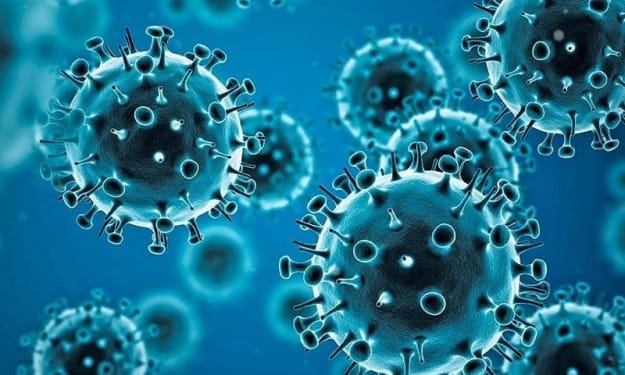Breakthrough COVID instances may boost immunity, according to a new research.
COVID new research

A new study suggests that catching COVID-19 after vaccination may boost the immune system's ability to fend against future versions.
According to the new research, which was published Thursday (Dec. 16) in the journal JAMA, the tiny study only included 26 persons with breakthrough infections, and all of the participants had received the Pfizer-BioNTech vaccine, so there is no data on other vaccine brands.
However, study co-author Dr. Marcel Curlin, an associate professor of medicine at Oregon Health & Science University (OHSU) School of Medicine, told KATU News that those who catch COVID-19 after vaccination may have an advantage in fighting the virus, even if they are exposed to a new coronavirus variant.
Of course, while this study points to a possible silver lining to acquiring a breakthrough infection after immunization, contracting COVID-19 after vaccination still entails dangers. Breakthrough infections, for example, can cause protracted COVID, a condition in which patients suffer from symptoms such as chronic exhaustion, cognitive impairment, and gastrointestinal difficulties for months after their original COVID-19 infection has passed, according to Reuters.
Curlin and his colleagues took blood samples from 26 OHSU health care workers who contracted COVID-19 after being completely vaccinated, which meant they had received two doses of the Pfizer-BioNTech vaccine. The study stated that none of the patients had had COVID-19 before their breakthrough infections, and that 24 of the 26 breakthrough infections produced only "moderate symptoms." The researchers looked at viral samples from 19 of these breakthroughs and discovered that 10 of them were caused by the delta variation and nine were not.
The blood from these breakthrough cases was compared to that of 26 OHSU health care workers who had also been properly immunized with Pfizer-BioNTech injections but had not acquired a breakthrough infection.
The researchers extracted a clear, yellowish fluid called serum from blood samples and mixed it with cultivated human cells and SARS-CoV-2, the virus that causes COVID-19, on lab plates. The researchers next used a test called a "focus reduction neutralization test" to see how effective the antibodies in the serum were in neutralizing the coronavirus. Antibodies neutralize viruses by binding to them in such a way that they can no longer infect cells.
According to the JAMA paper, the researchers tested the original strain of SARS-CoV-2 as well as the alpha, beta, gamma, and delta variations of concern. (They did not do any tests on the recently discovered omicron version.) The serum from individuals who had breakthrough infections neutralized the various variants of the virus more efficiently than the serum from the control group, according to these tests.
"So, if I take a person who was just vaccinated alone, and someone who had vaccine plus breakthrough, and I take their serum and compare it to the alpha variant, delta variant, beta... in all cases, the vaccinated infected person has much better ability to cope with those other variants," Curlin told KATU News.
In general, patients with breakthrough infections have more antibodies that latch onto the virus's spike protein's receptor-binding domain (RBD), which attaches directly to the cell surface, compared to controls. According to Live Science, these RBD-specific antibodies are regarded to be the most important for neutralizing the coronavirus.
According to the scientists, serum from the breakthrough group was roughly 950 percent more effective against the original SARS-CoV-2 virus than controls in neutralization testing. Antibody responses to the problematic variations were also increased; serum from the breakthrough group, for example, was 1021 percent more effective against delta than serum from the control group.
Serum from delta breakthrough infections was more effective against the variation than serum from controls or non-delta breakthrough infections. According to the researchers, designing boosters to match diverse variations might help "broaden" the vaccine-induced immune response.






Comments
There are no comments for this story
Be the first to respond and start the conversation.